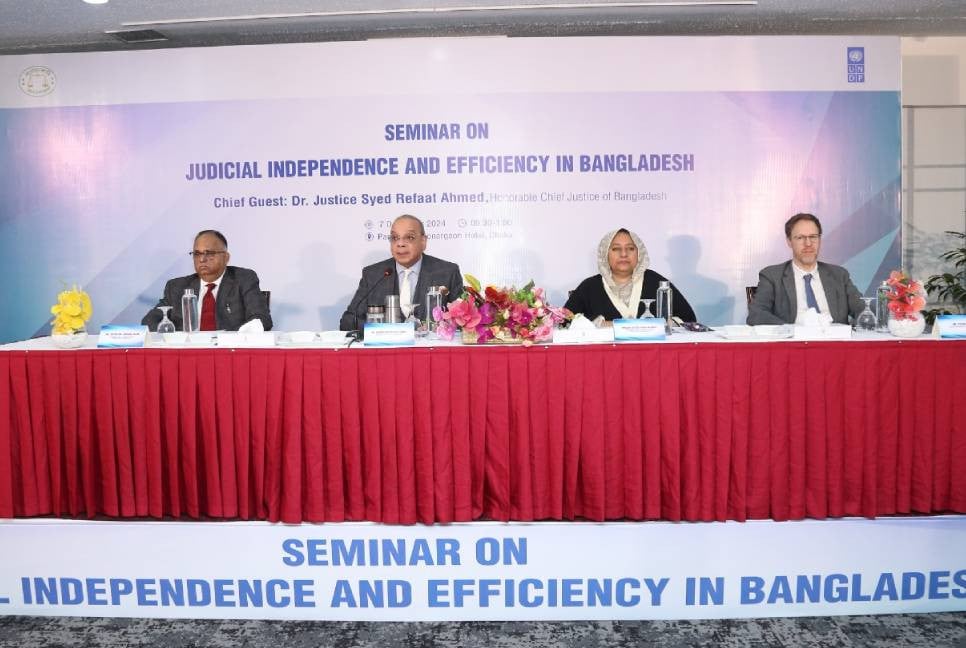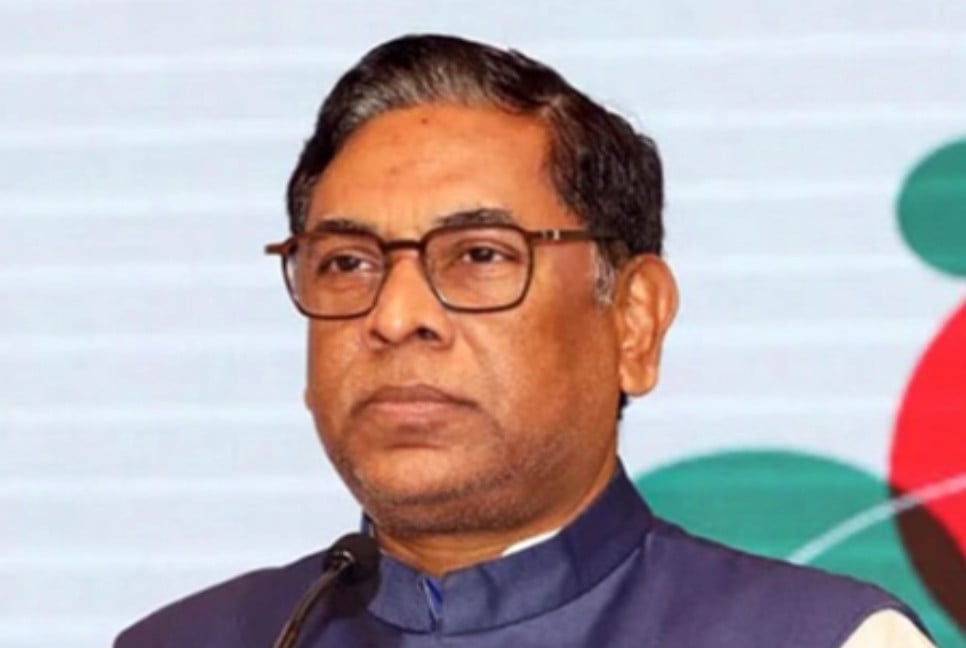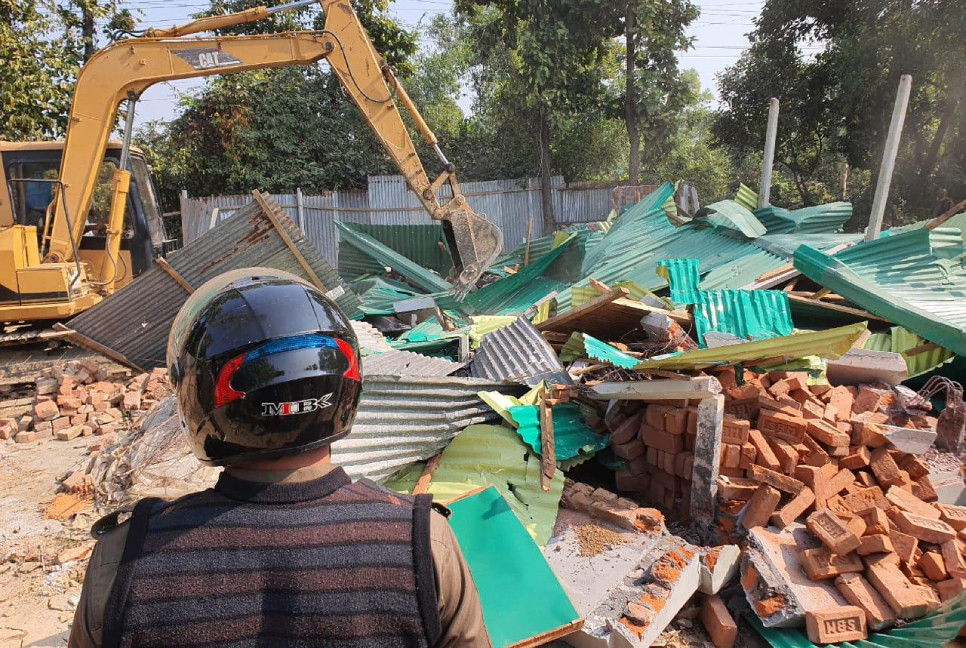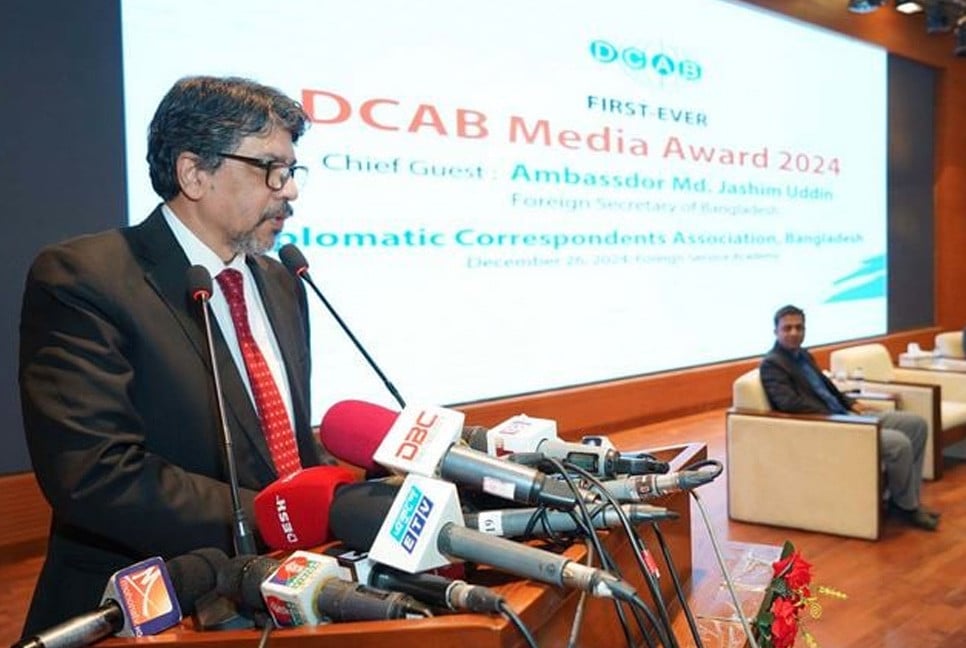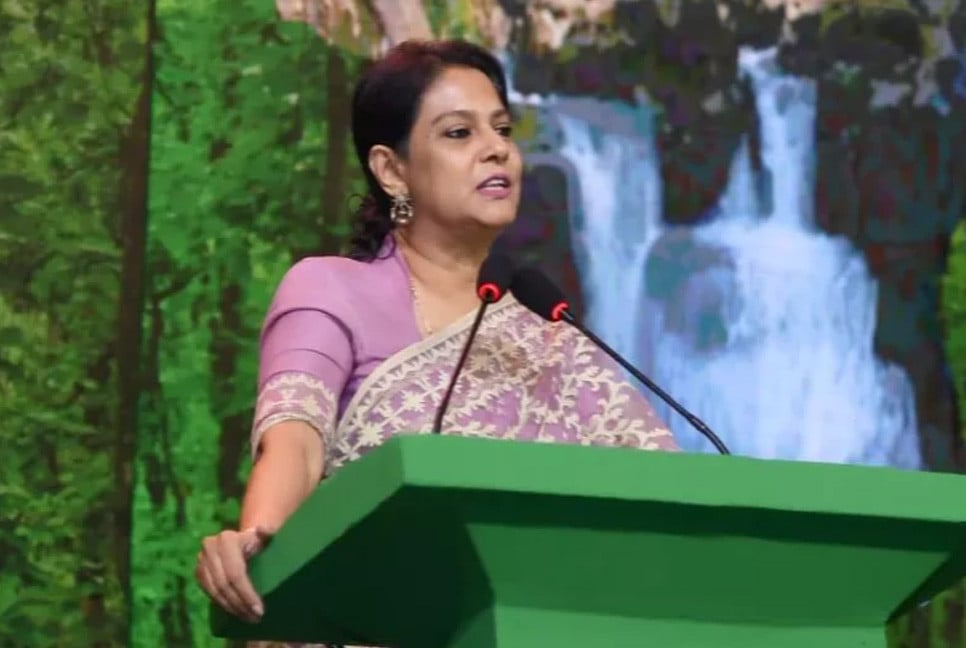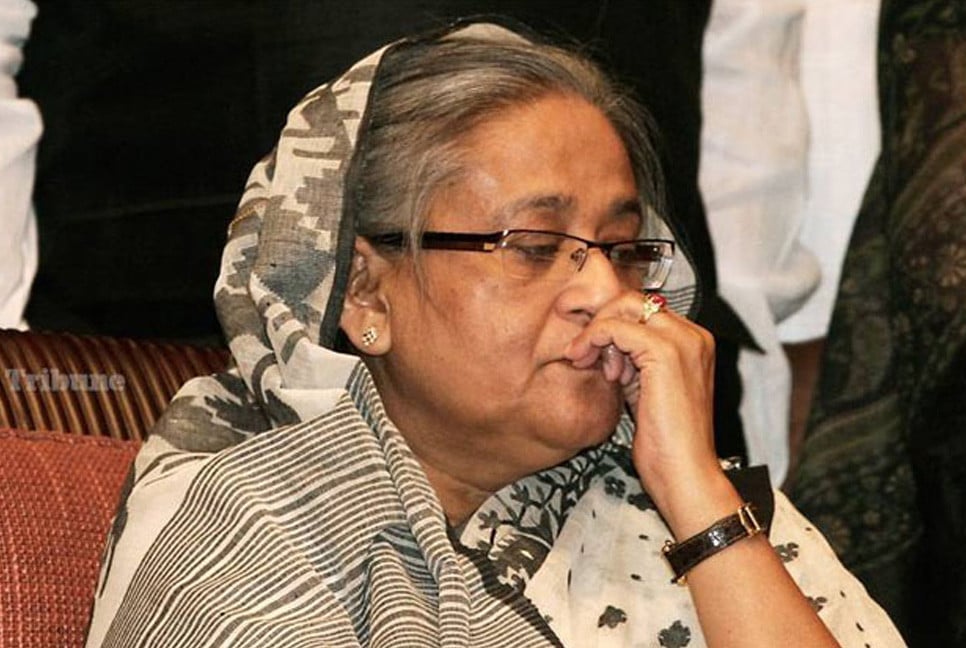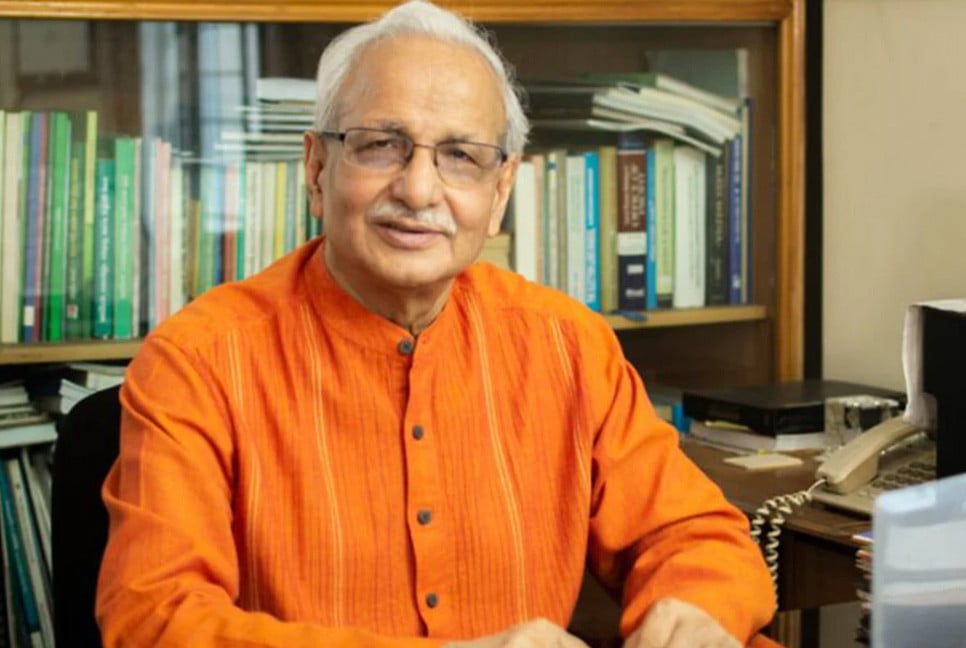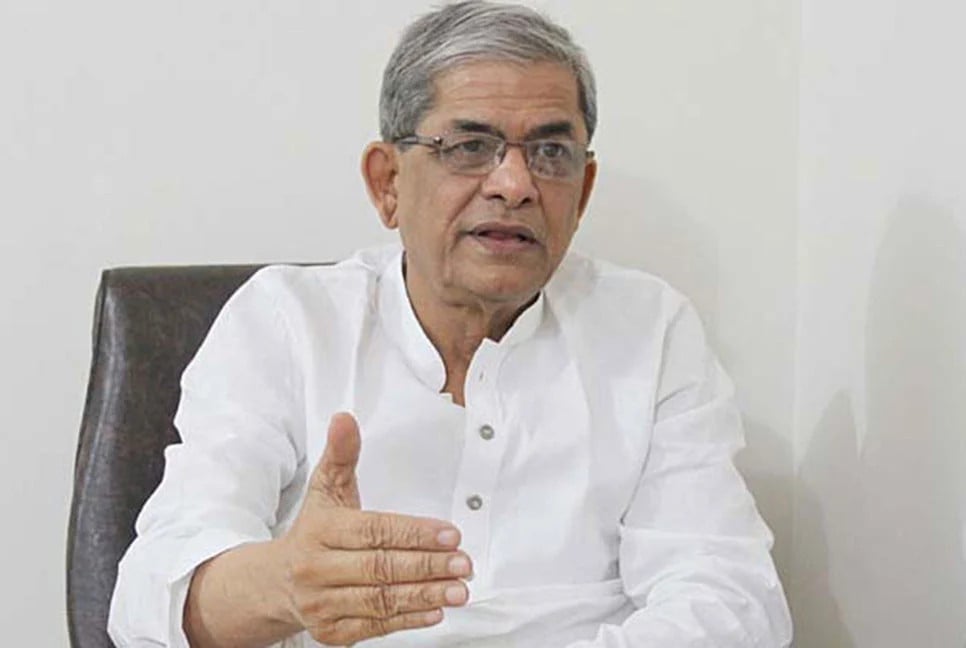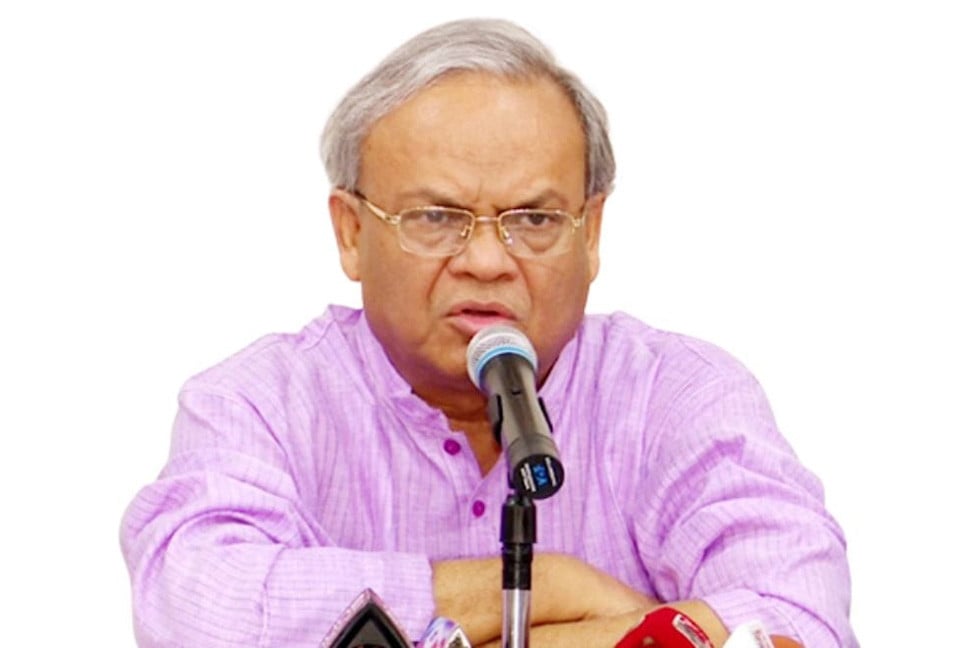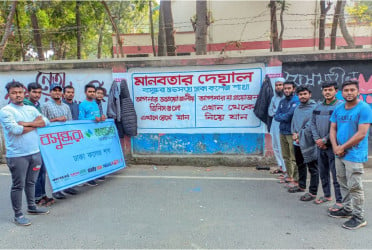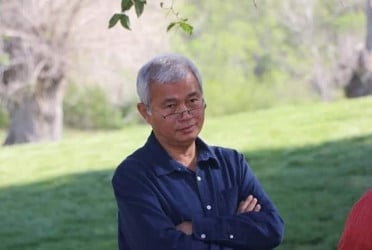Chief Justice Dr Syed Refaat Ahmed said judicial efficiency is not merely an administrative objective but a moral imperative, emphasising the judiciary’s responsibility to ensure fairness, equity and access to justice for all.
“This role is not just a position of leadership; it is a solemn trust entrusted by the people of this nation to uphold fairness, and equity, and ensure access to justice for all, irrespective of their status,” he said.
Syed Refaat Ahmed made the remarks while speaking as the chief guest at a seminar on judicial independence and efficiency at a city hotel on Saturday, said a media release.
About his assuming the office of 25th Chief Justice, he said, “This role is not merely a position of leadership, but a solemn trust bestowed by the people of this nation to uphold fairness, equity, and ensure access to justice for all, irrespective of their status or circumstances.”
To reflect on the trust bestowed by the people on September 21, he unveiled a comprehensive roadmap for judicial reform.
The Chief Justice further stated that the roadmap for judicial reform is a cornerstone of his vision to strengthen the judiciary and its capacity to serve the people with integrity and efficiency.
He mentioned that he proposed to form a Judicial Appointment Council to institutionalize transparency and meritocracy in the appointment process of apex court judges.
The preparation of Posting and Transfer Guidelines for District Judiciaries, aimed at fostering consistency and fairness in judicial postings is under process, he continued.
Regarding the restoration of the Supreme Judicial Council, Syed Refaat Ahmed said, “In reinforcing the judiciary's independence from the legislative branch, we have restored and strengthened the Supreme Judicial Council following the disposal of the 16th Amendment review case. This pivotal move effectively eliminates the provision for Parliament to impeach Supreme Court judges, ensuring that the judiciary remains free from undue political influence.”
He mentioned the introduction of a helpline for the Supreme Court to facilitate citizens' unimpeded access to the system to ensure transparency and efficiency.
“Judicial independence must be complemented by efficiency. A justice system that is delayed or inaccessible is a justice system denied”.
The Chief Justice assured that he is aware of the challenges posed by case backlogs, delays, and procedural inefficiencies.
To address these challenges Bangladesh's Judiciary requires a multi-faceted approach that combines innovation, diligence, and foresight, he added.
The Chief Justice called for the support of development partners to achieve these transformative initiatives. In particular, he stated that developing partners like UNDP can play a pivotal role as a catalyst, facilitating capacity-building programs, technological advancements, and policy development tailored to the judiciary's unique needs.
Among others, the resident representative of UNDP Bangladesh, Stefan Liller and Judges of both the High Court Division and Appellate Division of the Supreme Court were present at the event.
In his welcome address, Stefan Lilier highlighted the roadmap for the judiciary initiated by the Chief Justice of Bangladesh as a timely initiative. He further elaborated that for the promotion and protection of human rights and freedom, the efficiency and integrity of the judiciary are crucial.
He expected that the implementation of the roadmap introduced by the Chief Justice can play an important role in this regard saying that in this regard UNDP is ready to provide expertise and the best practice guidelines.
Justice Ashfaqul Islam of the Appellate Division as the chair for the Supreme Court Special Committee for Judicial Reform also provided valuable guidelines in his speech.
bd-pratidin/GR

